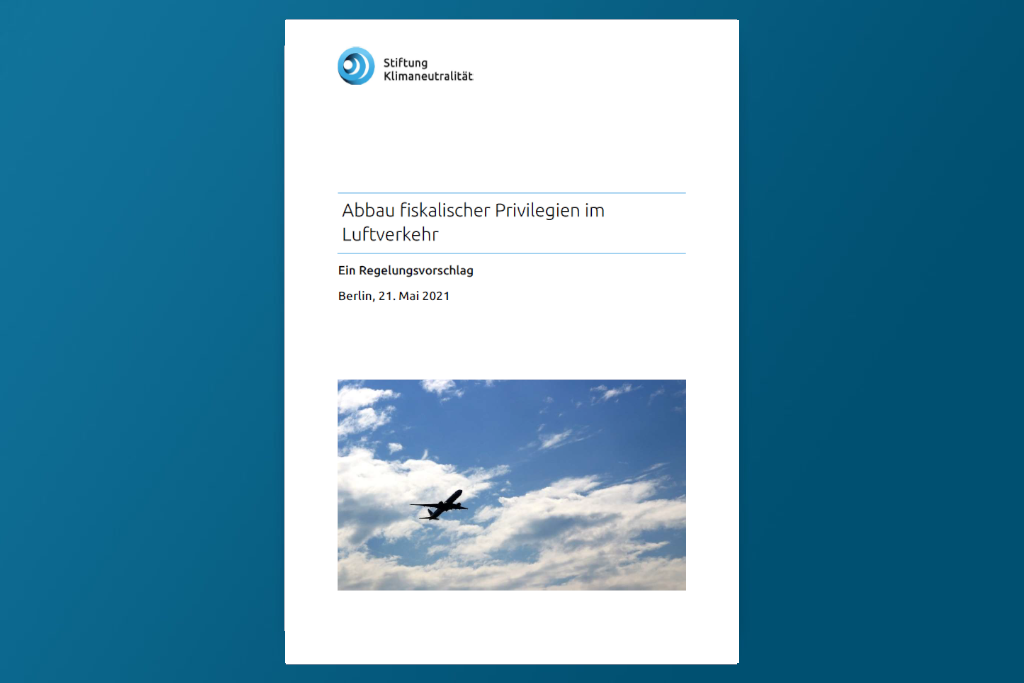No other mode of transport causes higher greenhouse gas emissions per person and kilometer than air travel. While greenhouse gas emissions in Germany fell by 35% overall between 1990 and 2019, those from air travel rose by 150%. Yet this mode of transport is artificially cheapened by a series of tax privileges.
Climate Neutrality Foundation commissioned the Öko-Institut to conduct a study to highlight the taxation and carbon pricing of air transport in comparison with other modes of transport and to identify the political and legal options for action at national, European and international level to reduce the various privileges enjoyed by air transport.
In Germany, VAT of 19% is only levied on domestic flights. No VAT is charged on cross-border flights, which are responsible for around 94% of CO2-emissions from air traffic in Germany. In addition, air transport is the only mode of transport exempt from energy taxation. Aviation does participate in European emissions trading, but receives 85% of the certificates free of charge. In addition, only intra-European flights are covered by EU emissions trading.
Building on the study, Climate Neutrality Foundation makes the following proposal: Since EU law stands in the way of extending the VAT to cross-border flights, it is proposed to take the aviation tax as starting point. The three existing levels of this “ticket tax” are raised to a level that roughly corresponds to the VAT rate of a typical ticket price in one level, thus offsetting the VAT exemption for international flights. In distance class I (intra-European flights), the tax rate would be EUR 60, in distance class II (up to 6,000 kilometers) EUR 120 and in distance class III (long-distance flights) EUR 200.
In parallel with a reform of the air traffic tax, at European level, the German government should press for a reduction in privileges for air traffic in energy taxation and in EU emissions trading . The goal shoud be an EU-wide taxation of kerosene at the minimum tax rate of 33 ct/l and an end to the free allocation of emission allowances.
Siemons et al. (2021):
Options for regulating the climate impacts of aviation. Study by Öko-Institut commissioned by Stiftung Klimaneutralität.
